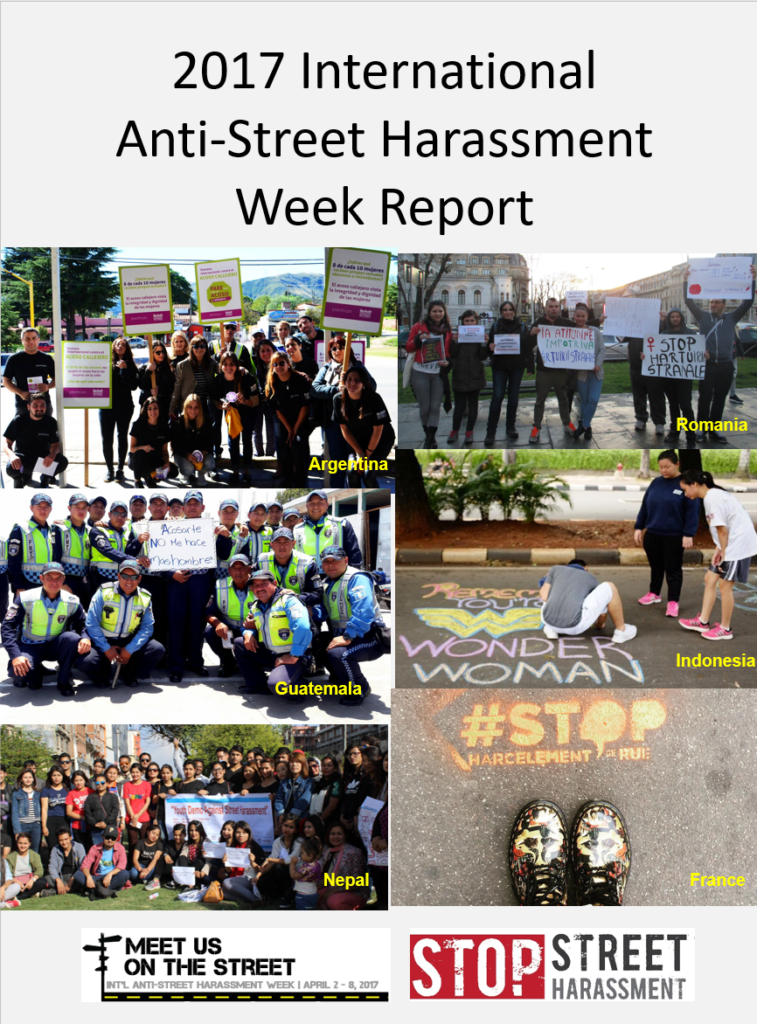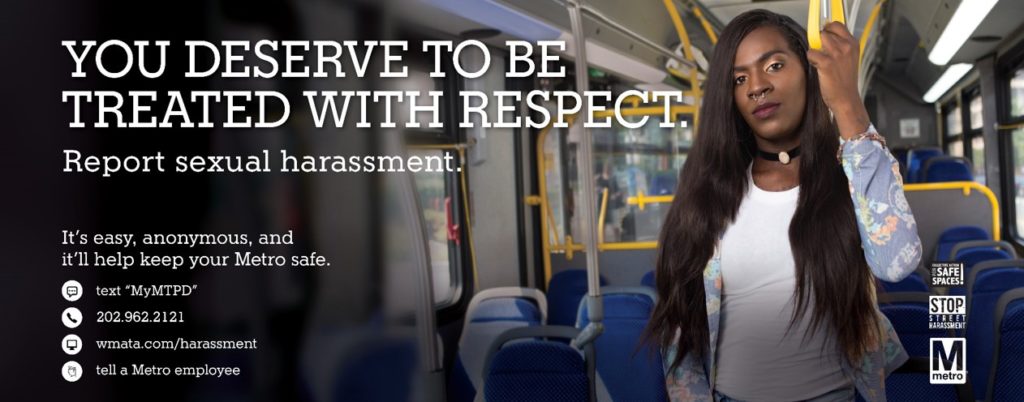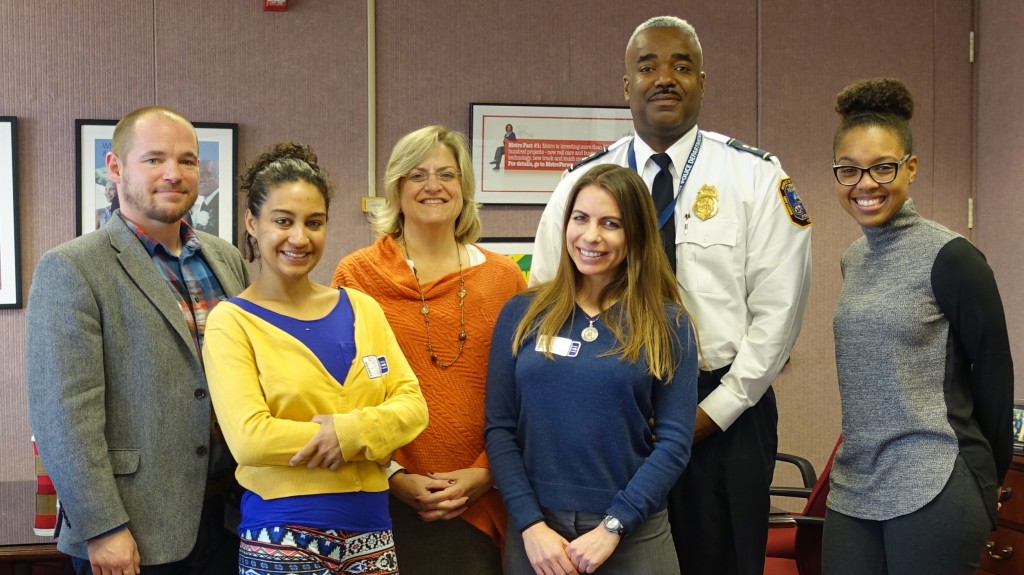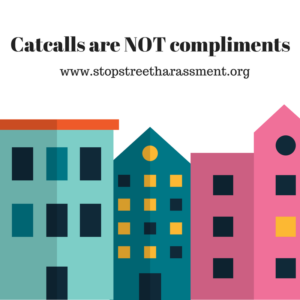Dear Friends,
 First, thank you for your support in helping us serve more than 300 people in the first year of the National Street Harassment Hotline! Special thanks go to monthly donors Alan Kearl and Beckie Weinheimer for their consistent support.
First, thank you for your support in helping us serve more than 300 people in the first year of the National Street Harassment Hotline! Special thanks go to monthly donors Alan Kearl and Beckie Weinheimer for their consistent support.
You, too, can help people in need all across the nation by making a $10 or more donation today. You can also help by spreading the word about the hotline to ensure that the people who need it know about it!
 Volunteer as a Blog Correspondent:
Volunteer as a Blog Correspondent:
We’re looking for a few more volunteer blog correspondents for our last cohort of 2017 — Sept. to Dec. Apply today!! Past correspondents can apply. We are especially seeking people outside the USA.
Many thanks to our latest cohort that just wrapped up their session. Hailing from Brazil, Indonesia, Nepal and USA, they wrote on topics like the psychological effects of street harassment, Latinx women’s experiences with street harassment, the line between humor and harassment and women-only transit.
Recent Board Member Actions:
 The SSH community was horrified by the events in Charlottesville, VA, and the growing boldness of Nazis and White Supremacists. SSH board member Maureen Evans Arthurs was among those who took to the streets and marched in solidarity with Charlottesville.
The SSH community was horrified by the events in Charlottesville, VA, and the growing boldness of Nazis and White Supremacists. SSH board member Maureen Evans Arthurs was among those who took to the streets and marched in solidarity with Charlottesville.
SSH board member Lani Shotlow-Rincon worked with the Chicago Veterans Affairs Medical Center on a campaign aimed at eliminating sexual harassment at their facility. They adapted her anti-street harassment artwork “Hello, My Name is NOT HEY BABY” as part of their campaign. All of the people featured in the campaign are veterans.

SSH board member Patrick Ryne McNeil wrote an article for the Huffington Post, “These Resources Are Critically Important During Trump’s Toxic Presidency.”
Groping is Sexual Assault:
When Taylor Swift went to court in Denver, CO, for two lawsuits stemming from a former DJ allegedly groping/assaulting her, she took a strong stance against victim-blaming. Then her win was a win for abuse survivors everywhere. I did an interview about the lawsuits for the Associated Press and two TV interviews for the Morning Dos (and aired in six major cities). I also penned a piece for Huffington Post.

Meetings, Events & Initiatives:
We partnered with Free Women Writers, an initiative by and for Afghan women, as they fundraise to be able to print booklets with resources for survivors of violence (including street harassment) to distribute them in Afghanistan. While the booklet is available online, many women in need do not have access to the Internet. You can donate online to help them reach their goal — they’re only about $100 from achieving it!
SSH is supporting the New York-based Sydnie L. Mosley Dances’ The Window Sex Project Community Workshop presented in collaboration with I, Too Arts Collective on Sept. 14 and Oct. 16 (10 a.m. to 3 p.m.). Harlem women and genderqueer folks ages 18-40 are invited to participate in a FREE workshop rooted in movement, storytelling, discussion and healthy living. RSVP + more info.
Our partner Safecity in India and The Red Elephant Foundation are launching a mobile app on Sept. 21. Via Project 21, people will be able to report sexual violence globally as well as access help for their communities. If you would like to collaborate and join in as a partner either for the solidarity event on Sept. 21 or for a longer period, you can sign up.
 Lastly, I gave talks to the Institute for a Democratic Future cohort in D.C. and the Women’s Network at Exiger Diligence in Maryland. On Sept. 20, I’ll be a speaker at the University of New Hampshire. This month I also joined Jessica Raven, the Executive Director of Collective Action for Safe Spaces, in a meeting with the Washington Metropolitan Area Transit Authority (WMATA) to discuss launching anti-harassment audio announcements on the transit system this fall and to meet with a new staff member who will work on more comprehensive sexual harassment training for WMATA staff.
Lastly, I gave talks to the Institute for a Democratic Future cohort in D.C. and the Women’s Network at Exiger Diligence in Maryland. On Sept. 20, I’ll be a speaker at the University of New Hampshire. This month I also joined Jessica Raven, the Executive Director of Collective Action for Safe Spaces, in a meeting with the Washington Metropolitan Area Transit Authority (WMATA) to discuss launching anti-harassment audio announcements on the transit system this fall and to meet with a new staff member who will work on more comprehensive sexual harassment training for WMATA staff.
Thank you, and please do consider making a $10 or more donation today to support the National Street Harassment Hotline as we enter year two of service!
In Solidarity,Holly Kearl
SSH Founder, CEO


 Yasmin Curzi, Rio de Janeiro, Brazil
Yasmin Curzi, Rio de Janeiro, Brazil Pritha Khanal, Kathmandu, Nepal
Pritha Khanal, Kathmandu, Nepal Astrid Nikijuluw, Serpong, Banten, Indonesia
Astrid Nikijuluw, Serpong, Banten, Indonesia Dee Rodriguez, Reading, PA, USA
Dee Rodriguez, Reading, PA, USA


